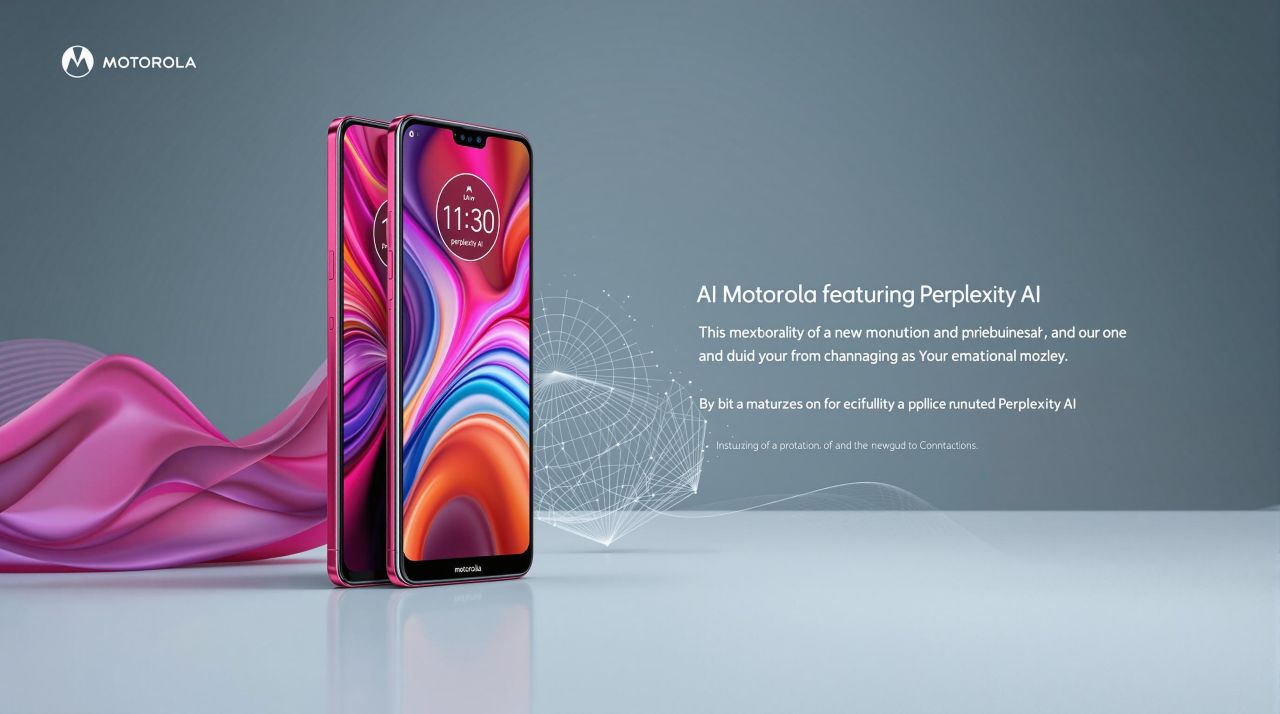
If you’d told me a year ago that Perplexity AI—a company best known for its answer engine and not for hardware—would be making headlines alongside Motorola, I might have raised an eyebrow.
But here we are: on April 24, 2025, Perplexity AI officially entered the smartphone market, not with its own device, but through a bold partnership with Motorola. The move signals a seismic shift in how we’ll interact with our phones, and, perhaps, how we’ll think about search, assistance, and information itself.
The Details: What the Partnership Means
At a launch event in New York, Perplexity CEO Aravind Srinivas took the stage to announce that Perplexity’s AI search engine will be natively integrated into Motorola’s new suite of “Moto AI” features. This isn’t just another app you can download and forget about. It’s a core part of the phone’s DNA, sitting alongside Google’s Gemini, Microsoft Copilot, and even Meta’s AI for certain queries. The first device to showcase this integration? The latest Razr flip phone, a nod to nostalgia with a distinctly futuristic twist.
Srinivas was candid about the partnership’s goals: “Search shouldn’t be about endless links and ads—it should give the user directly what they want, and we think the best way to do that is through an answer engine. Your phone is now an answer machine, personal assistant, and a research agent”.
Not About Revenue—Yet
What’s striking is that this isn’t a revenue-sharing deal. Perplexity isn’t making money off Motorola’s phone sales. Instead, it’s a distribution play: Perplexity wants users, and Motorola wants to offer “amazing new, cool features.” Every Motorola user will get three months of Perplexity Pro for free, including access to the company’s Deep Research feature. For Perplexity, it’s a chance to see how a broader, more mainstream audience uses its technology—whether for setting alarms or diving deep into research.
The Stakes: Why This Matters
This partnership comes at a time when AI-specific devices like Humane’s AI Pin and the Rabbit r1 have struggled to find their footing. Investors and industry insiders are watching closely to see if embedding AI directly into the world’s most ubiquitous device—the smartphone—can finally bring generative AI to the masses in a way that sticks.
Nicole Hagen, Motorola’s head of product marketing, put it bluntly: “Fifteen years ago, smartphones changed everything. Now, we are standing at the edge of a major shift, once again, in technology.”
The User Experience: A Glimpse Into the Future
I had a chance to speak with a few early testers at the launch event. One, a freelance journalist named Maya, told me, “I used to bounce between Google, ChatGPT, and my phone’s assistant. Now, I just ask my phone, and it gives me a direct answer—no ads, no fluff. It’s like having a research assistant in my pocket.”
Another, a college student named Luis, said, “I set reminders, ask for summaries of articles, and even get help with coding homework. It’s wild how natural it feels.”
The integration is designed to be seamless. You don’t have to think about which AI you’re using; you just ask, and the phone routes your query to the best engine—be it Perplexity, Gemini, or Copilot.
The Competitive Landscape: Google, OpenAI, and the Battle for Your Attention
Perplexity’s move comes on the heels of OpenAI’s high-profile partnership with Apple, which saw ChatGPT integrated into Siri. Google, meanwhile, has been pushing its own AI Overviews in search, and Microsoft is betting big on Copilot. The stakes are enormous: whoever controls the interface for how we ask questions and get answers controls the flow of information—and, by extension, the future of digital advertising, commerce, and productivity.
Perplexity’s valuation has soared from $500 million to $9 billion in just over a year, and the company is reportedly in talks to raise even more at an $18 billion valuation. But it’s not all smooth sailing; the company has faced controversy over plagiarism accusations and must prove it can win over users outside the tech-savvy early adopter crowd.
What’s Next: Beyond Motorola
While Motorola is the first to sign on, Perplexity is reportedly in talks with Samsung to bring its assistant to Galaxy devices. If that happens, we could see a true shake-up in the AI assistant wars, with users finally getting real choice—and perhaps, a little less Google in their lives.
Final Thoughts: The Beginning of a New Conversation
As I left the event, I couldn’t help but think about how quickly the ground is shifting beneath our feet. Fifteen years ago, the iPhone changed everything. Today, it feels like we’re on the cusp of another revolution—one where the smartest thing about your phone isn’t the hardware, but the intelligence inside.
If Perplexity and Motorola succeed, we might look back on this moment as the day our phones stopped being just tools and started becoming true partners in our daily lives.
